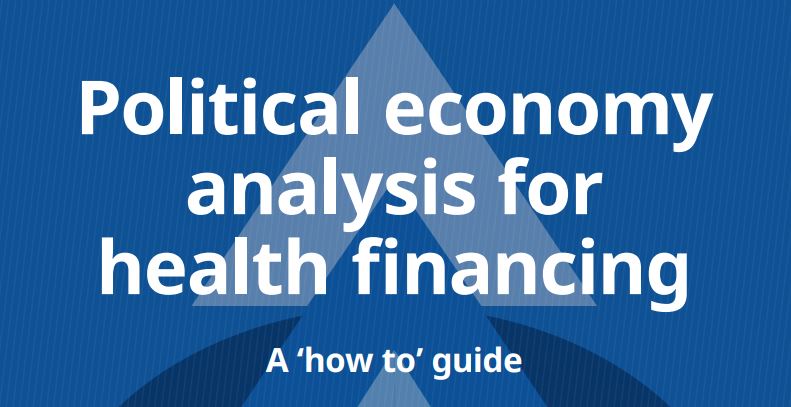
Political economy analysis for health financing – a ‘how to’ guide
Download this Political economy analysis for health financing how to guide here
This “Political Economy of Health Financing: How-to Guide” lays out a structured way to organize and analyze key political economy factors that can impact a health financing reform. Co-authored by Professor Sophie Witter and Dr Maria Bertone of ReBUILD for Resilience, this Guide, along with WHO’s broader programme of work on Political Economy of Health Financing Reform, explicitly recognizes the importance of political economy factors in influencing health financing reform trajectories.
This Guide is not intended as a toolbox or comprehensive mapping of all the potential political economy factors and strategies related to health financing reform. Rather, it provides a stepwise process for analysis and structured thinking about issues related to health financing and political economy. By understanding the various stakeholders involved in health financing reform, their relative power, interests and position, along with the institutions that shape the bargaining process and the related contextual and economic factors, strategies can be developed to overcome or take into account stakeholders’ resistance or support. The objective of incorporating political economy analysis in this way is to support a more strategic approach to reform as a way to increase the likelihood of effective design, adoption and implementation and ultimately progress towards UHC.
Further information on WHO’s Health Systems Governance and Financing team and the licence attached to this document can be found on the WHO website [opens new tab].